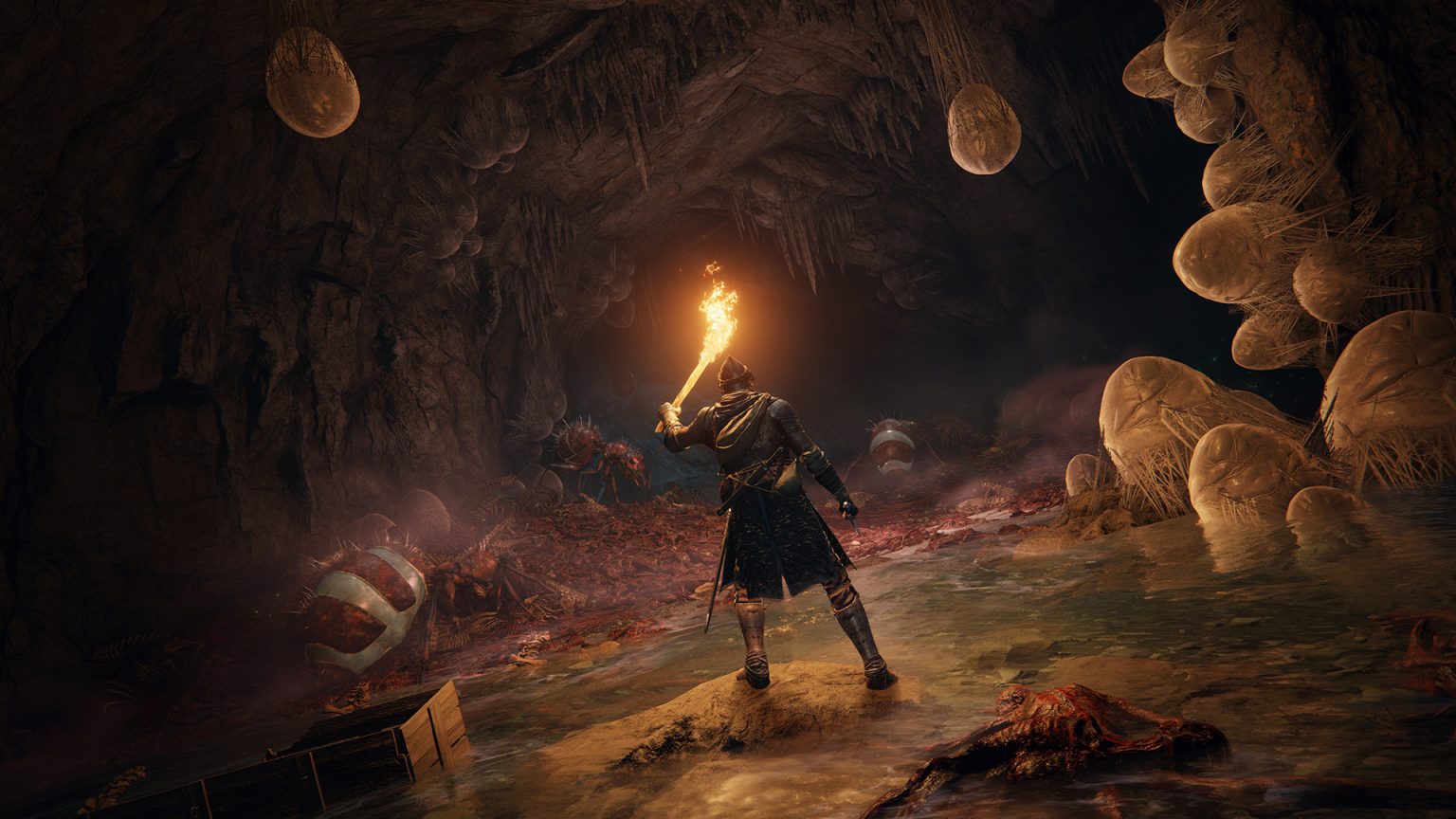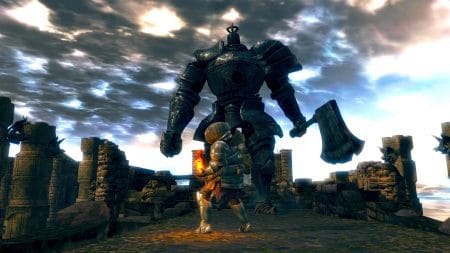Welcome to a new edition of Punished Notes! This time, I’m talking about the latest game that’s taken the world by storm: Elden Ring.
Basking in Endless Possibility
As I gazed at the majestic landscape of Elden Ring’s Liurnia region, I felt both powerful and powerless. The hideous and terrifying Godrick had just fallen by my sword, yet I looked ahead at a world full of danger and surprise, all engulfed in a mysterious haze. Despite my recent victory, I know death awaits me here, and that any future success will be as tenuous as it is now. Still, I feel like I can do anything, even though I know I can’t. Perhaps this very moment is my hero’s crowning achievement; even if I can’t defeat every major boss and become the Elden Lord, I’ll always have this.
Elden Ring, FromSoftware’s latest offering, essentially takes the Dark Souls formula and applies it to a massive and intricate open world, resulting in an awe-inspiring experience filled with incredible challenges and repeated failures, but also extraordinarily rewarding moments and nearly infinite possibilities. While the game certainly pummels the player with horrifying enemies and hazardous environments, it still gives you enough tools and enough guidance to be remarkable; the world constantly presents multiple pathways to success, should you wish to find them. It’s safe to say that Elden Ring will be on many critics’ Game of the Year lists, and I’ll probably be right there with them.
Video games, particularly RPGs, love making players feel special, for better or worse. They tell you that you are the chosen one, the hero who will save the world, and that the world exists for you to conquer. FromSoftware’s catalog of games generally stands in opposition to that idea, presenting especially hostile locales and offering little explanation and very little margin for error. Elden Ring is no exception here, but bucks the trend established by Demon’s Souls in one notable manner: My character’s story has a satisfying reason to end in failure, but not in a way that makes me feel like I am a failure.
As a result, I am approaching Elden Ring differently than I approach most RPGs: There’s a 0% chance I’m good enough (or patient enough) to finish its main story, so I’m just playing until I don’t want to anymore. Maybe I beat every boss and become the Elden Lord; maybe I’m just another sad sack for Gideon Ofnir to doubt. By letting go of that desire to finish the game, I’ve learned to enjoy every part of it for what it is, and not just as a roadblock toward a logical endpoint.

We Could Be Heroes, Just for One Day
In theory, every game is built this way. The experience “ends” when you decide to put the controller down and never return. But it doesn’t always feel that way. For example, I’ve played The Legend of Zelda: Majora’s Mask a half dozen times, but I’ve never actually beaten the game (or even gotten to the fourth dungeon). As a result, my experience with Majora’s Mask feels incomplete. I can’t talk about it quite in the same way I talk about other Zelda games that I’ve finished any number of times. In other cases, RPGs like Fallout or Skyrim aren’t designed with a focus on completion, but I still try to do as much of the critical path as possible when I play them.
With Elden Ring, though, FromSoftware structured the experience both narratively and mechanically in such a way that, for some players, the story doesn’t end when the final boss dies or when the credits roll; it could be over when the hero concludes they aren’t the hero. Maybe you’ll come out on top, or maybe you’re just another ghost. Either outcome actually makes sense, unlike in games such as Majora’s Mask, where Link giving up means Termina gets obliterated by an angry moon.
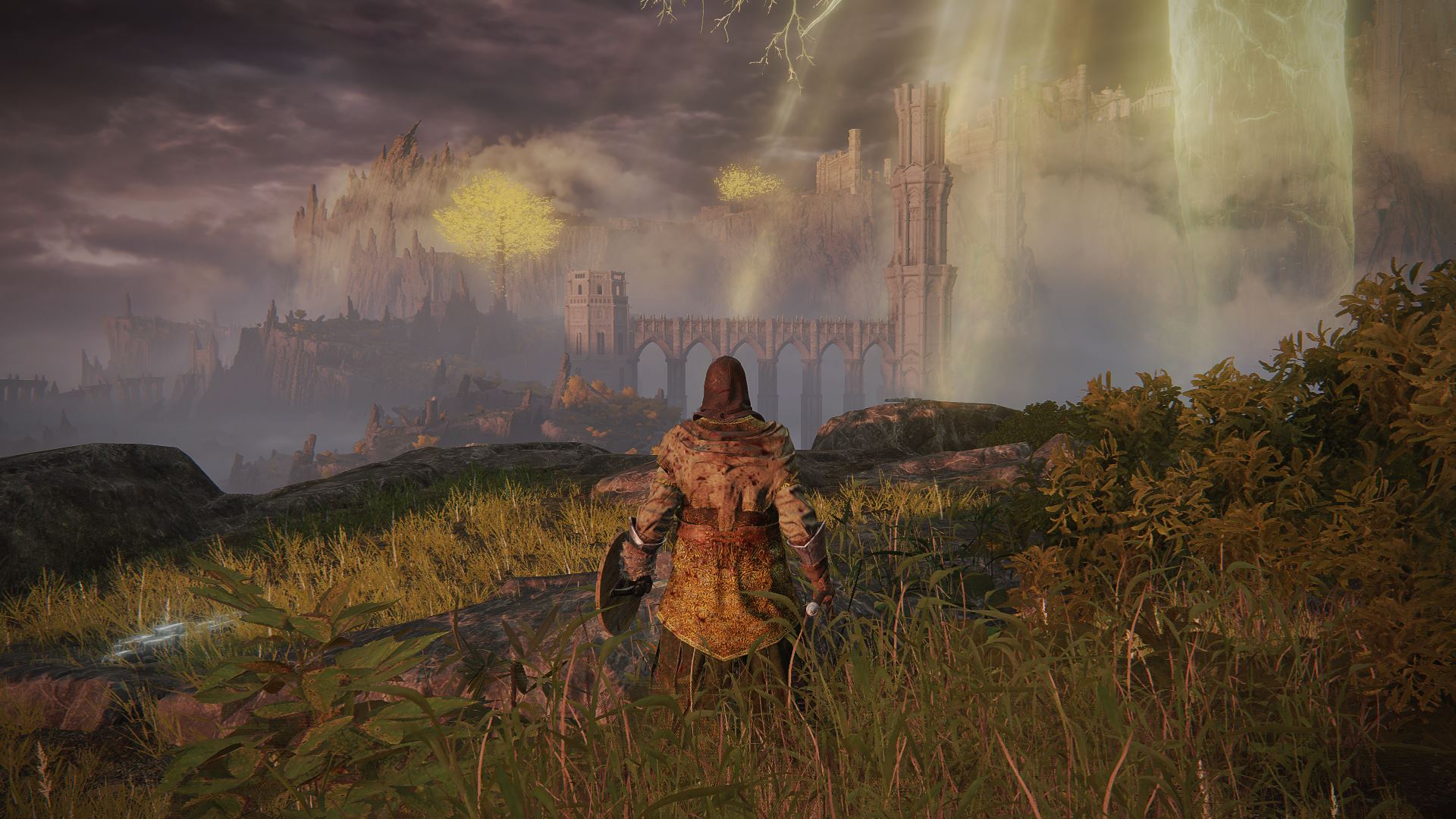
I Am Not the One
In Elden Ring, your character is one of the Tarnished, an exile called back to the Lands Between who must attempt to kill numerous large baddies in an effort to reconstruct the titular Elden Ring and become the Elden Lord. Throughout the world, you’ll meet other Tarnished and their allies, but you’ll also see ghosts of others trying to succeed (and how they’ve died).
Much like in previous FromSoft games, you can see bloodstains signifying other players’ deaths and even witness apparitions of different players strolling through the land and fighting enemies, just like you. Every time I see one of these spirits, I have the same thought: How many of these people have beaten (or are going to beat) Elden Ring? Do they think the same of me when they see me? Amid that, I also ponder: Do I actually have what it takes to be the Elden Lord, or am I destined to be another bloodstain?
Typically, this sentiment comes with discouragement. I’ve always respected the artistic philosophy behind the so-called “Soulsborne” games, but never enjoyed the actual experience of playing them. I attribute some of this negativity to a particularly toxic portion of the games’ fanbase, which often mistakes genuine criticism with a call to make everything “too easy.” But beyond even that, the failure I experienced in Dark Souls never felt instructive or productive; it just felt demoralizing and anxiety-inducing. I don’t need that in my life, so I’ve largely ignored the FromSoft oeuvre as a form of self-care (at least that’s how I justify it to my friends who adore the games).
In the case of Elden Ring, though, the notion of incompleteness provides welcome relief. This game is so vast, so endlessly fascinating, and offers so many different gameplay opportunities. Completing the main story feels comically out of reach for a FromSoft novice such as myself. As a result, I feel no pressure and no reason to seek out such a lofty goal, and instead I treat every single grain of progress in Elden Ring, no matter how small, as a momentous achievement. That way, I’m always the hero of the moment, regardless of whether I ever get to call myself the Elden Lord.
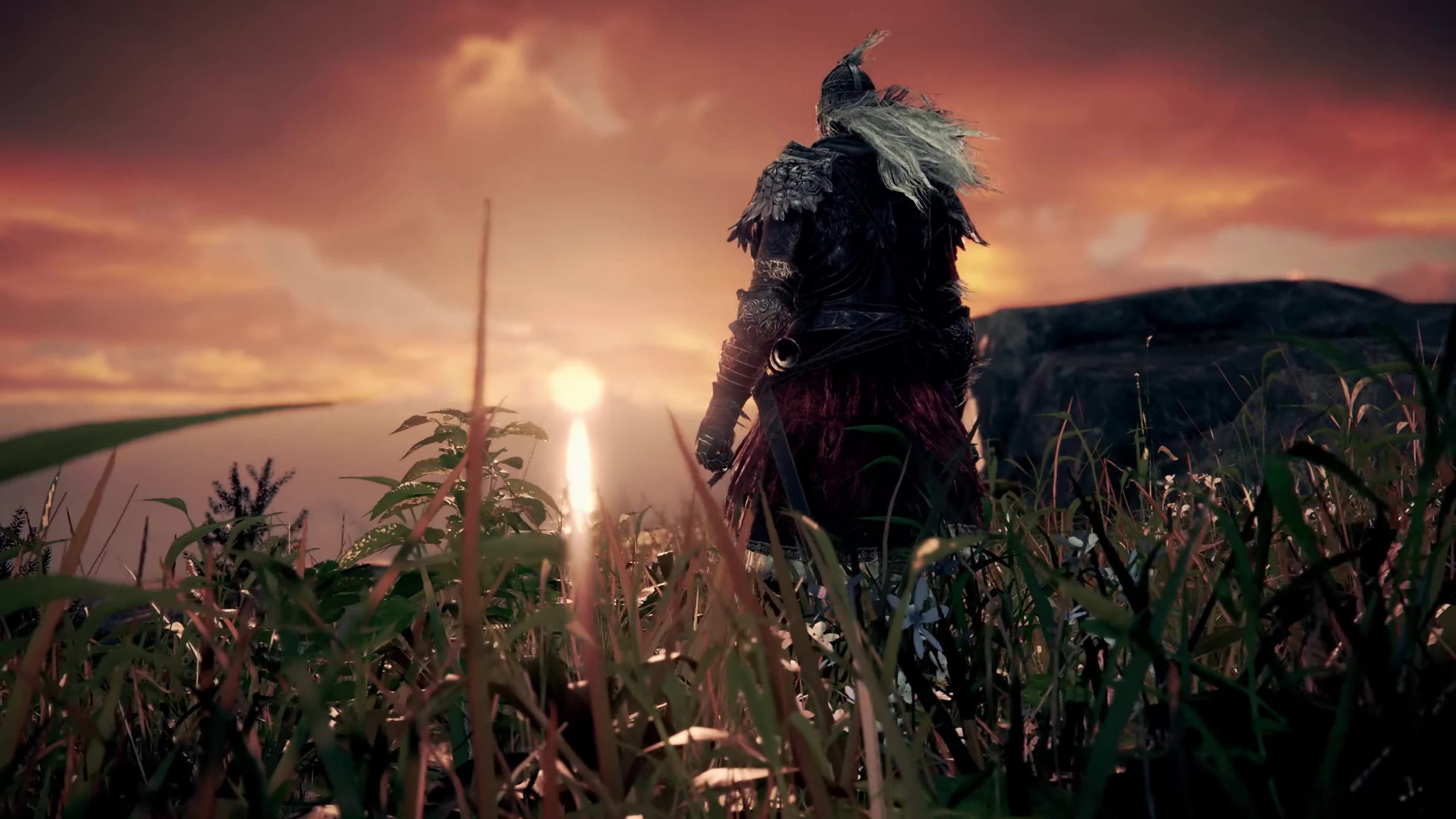
The End Has No End
I don’t enjoy starting games that I don’t finish, and as a result I typically find little joy in slow, incremental progress. But with Elden Ring, progress never feels slow, because my end goal is largely vague. I’m not working toward defeating anyone or anything in particular; I’m just seeing how far I can go before I can go no further. Perhaps every Souls game is like this and I just missed it, but that doesn’t matter now; I’m playing Elden Ring the way I want to, and it works.
Beating Margit and Godrick felt like Herculean accomplishments in their own right, not just boxes to check on the way to something even more daunting. Maybe I can min-max my way into creating a godlike monster killer, but I’m not counting on that; I level up my character based on my interests and needs at the given time and don’t put too much thought into it. I treat every moment in this game as though it could potentially be my last memory with it, allowing myself to bask in Elden Ring’s excellence with no regrets and no worries. I may never become the Elden Lord, but I can be the lord of this very moment.

LIGHTNING ROUND!!!!!!!!!!!!!!!!!!!!!
-A lot is made of FromSoftware games and difficulty, but Elden Ring managed to make the whole experience far more approachable with three mechanics: summoning a ghost horse to run away from danger; summoning Spirit Ashes to do some of the heavy lifting in boss fights; and allowing the player to fast travel whenever they’re not in combat. I wouldn’t say the game is ever particularly easy, but I rarely feel trapped or stuck.
-That said, my least favorite parts of this game are the major dungeons (such as Stormveil Castle), since they feel too much like Dark Souls. Also, I can’t ride my horsey in Stormveil.
-I still wish I could just pause the damn game without using weird trickery.
-The multiplayer options seem incredibly cool, but I barely understand them and I don’t care enough to learn.
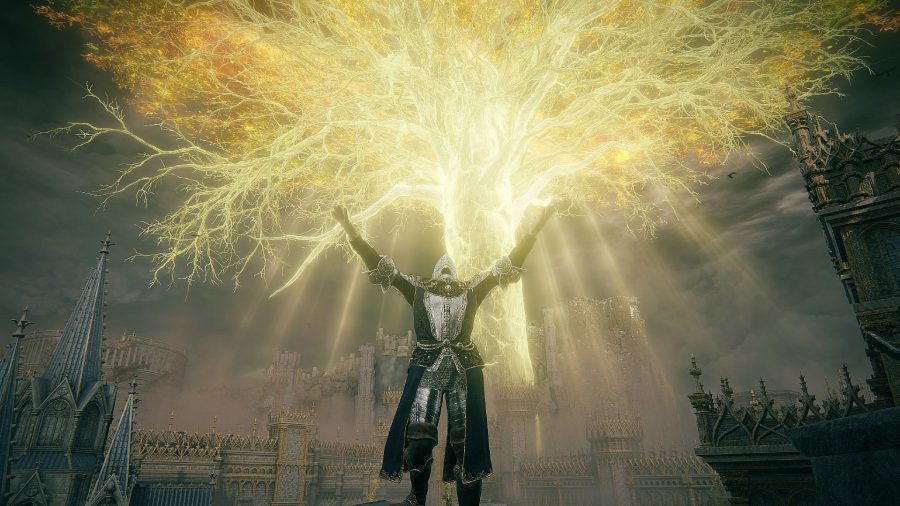
-The art direction in this game is obviously stunning, but in particular the greatest aesthetic element are the glowy Erdtrees in the distance. They present vitality, vivacity, and grandeur in an otherwise decrepit and melancholic world.
–Gita Jackson is right: Treating the game like Looney Tunes or Jackass in certain moments makes the repeated and inevitable deaths much easier to stomach.
-I’ve already heard some people argue that Elden Ring should be the future for open-world games going forward, but I think it’s fine if some franchises stick to the “Ubisoft-style” checklist worlds. Not everything has to be the same.
-Random things I like: greatswords, giant Jellyfish, incantations, Roundtable Hold, rolling goats, the jump button, the immediate calmness after finding a new Site of Grace
-Random things I dislike: “Liar ahead,” mediocre craftable items, encumbrance mechanics, the fact that I still barely understand anything about the lore or NPCs
Hankering for more Elden Ring content? Check out our Elden Ring class guide. Or, if you’re looking to explore the other Soulsborne games, read our pieces detailing every Dark Souls bosses ranked and every Demon’s Souls bosses ranked.
Sam has been playing video games since his earliest years and has been writing about them since 2016. He’s a big fan of Nintendo games and complaining about The Last of Us Part II. You either agree wholeheartedly with his opinions or despise them. There is no in between.
A lifelong New Yorker, Sam views gaming as far more than a silly little pastime, and hopes though critical analysis and in-depth reviews to better understand the medium's artistic merit.
Twitter: @sam_martinelli.


